Recently, I was playing the Spider-Man video game from 2018 on my computer. I played probably an hour and a half of it over the course of a week or two, and I got bored of it. I like the one from the Year of our Lord 2000 better. But as I was playing I was surprised by the characterization of my favourite long-underwear-donned comic hero.
What’s the point!
Spider-Man really doesn’t belong with the other comic book characters he is usually associated with. He is not a Superman as Nietzsche espoused, but rather is is something far older and better. He comes from the same vain of characters as Zorro, The Scarlet Pimpernel, and Ivanhoe, and comes to us from the history of the Merry Dixie Rebels, the Royalist Cavaliers, Robin Hood, St. King Ælfred and St. King David. He is a rebel fighting the institutionalized revolutionary world around him. He is a good outlaw, when good is outlawed, and he was written to give young men hope that even in the new days of machines and skyscrapers and nations and powers and evils beyond the scale of the old days that they could be like men of old.
Spider-Man, unbeknownst to the creators I am sure, stands against the revolutionary spirit, against nihilism, against the press, against the crooks and the crooked cops. He is a regular hero for our irregular age.
But who is Spider-Man?
“Is he this guy?”

Nope!
“What about either of these two?”
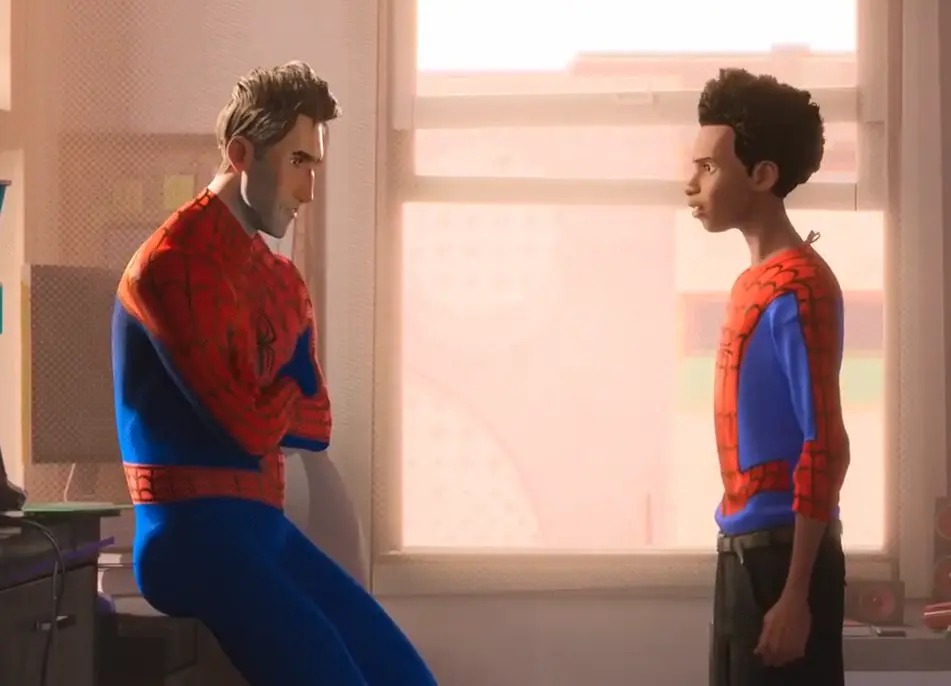
Wrong!
“How about him?”
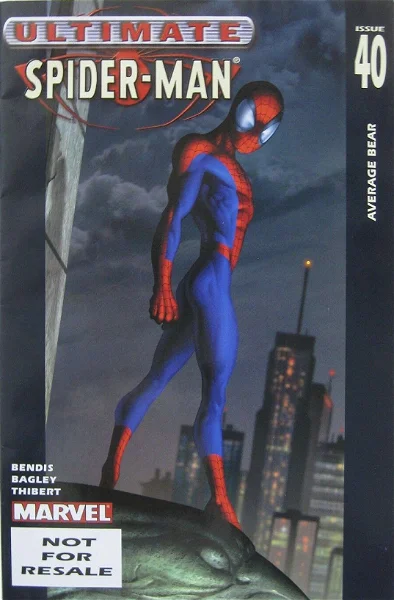
Definitely not!
“Okay, It’s gotta be him then!”
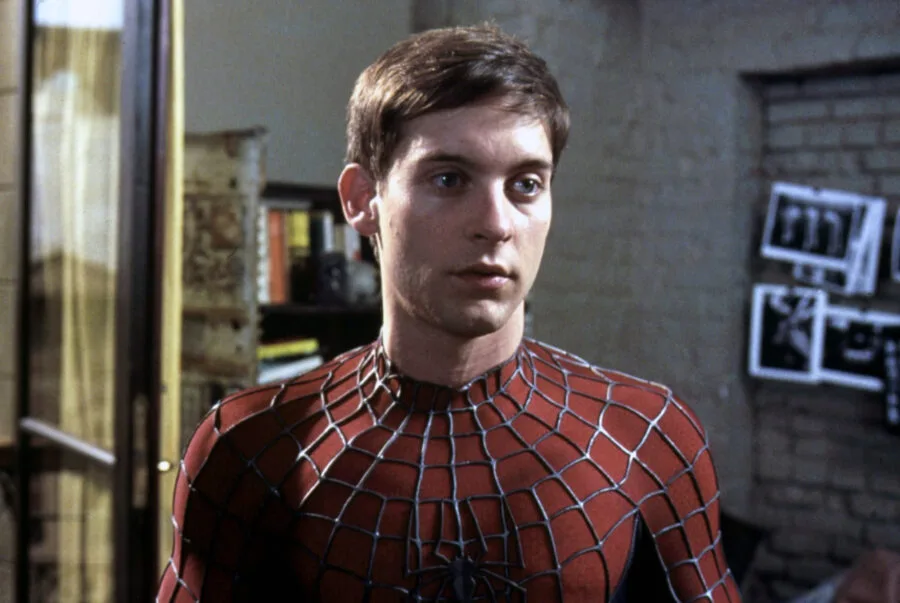
Nearly! He’s a Hollywood-ified version.
“Okay, so then you mean him?”
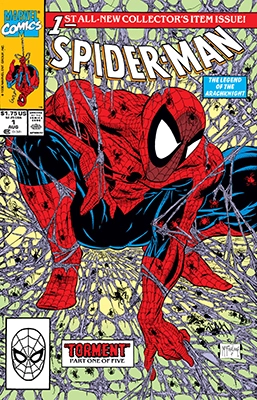
Colder!
You see, he, and only he, is Spider-Man.
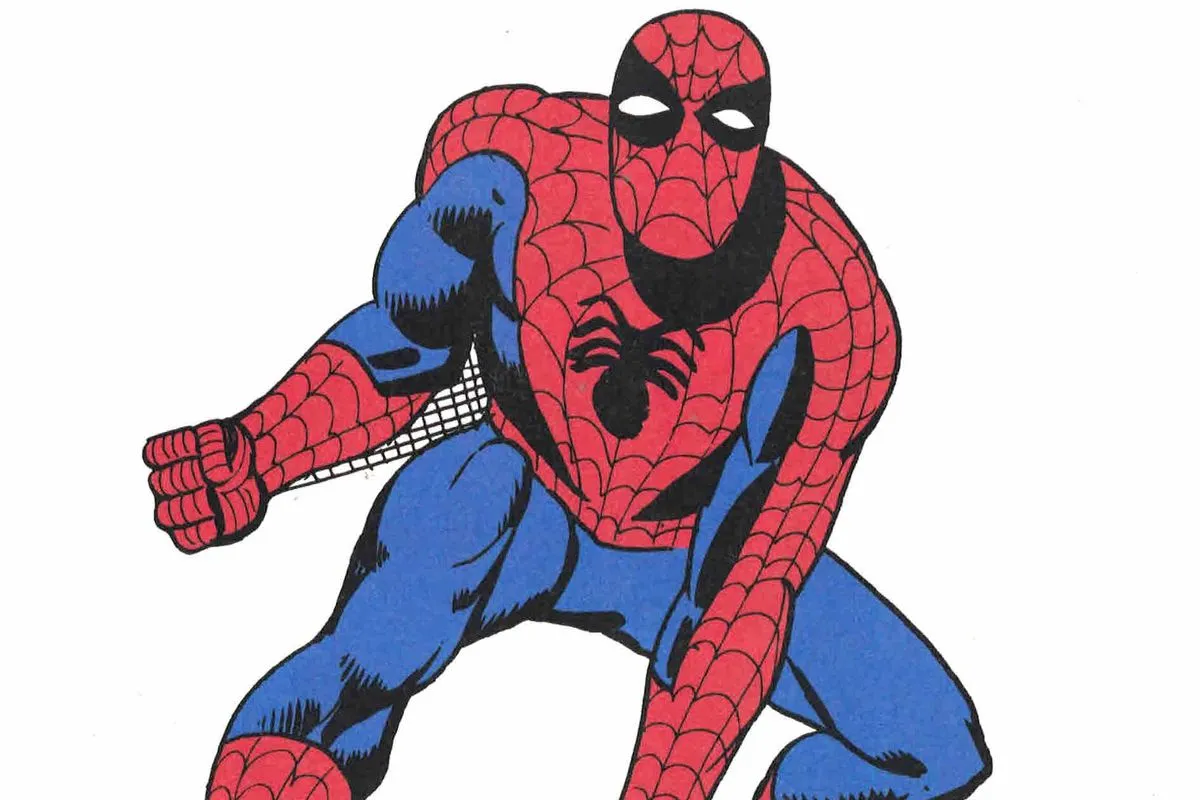
But also him.
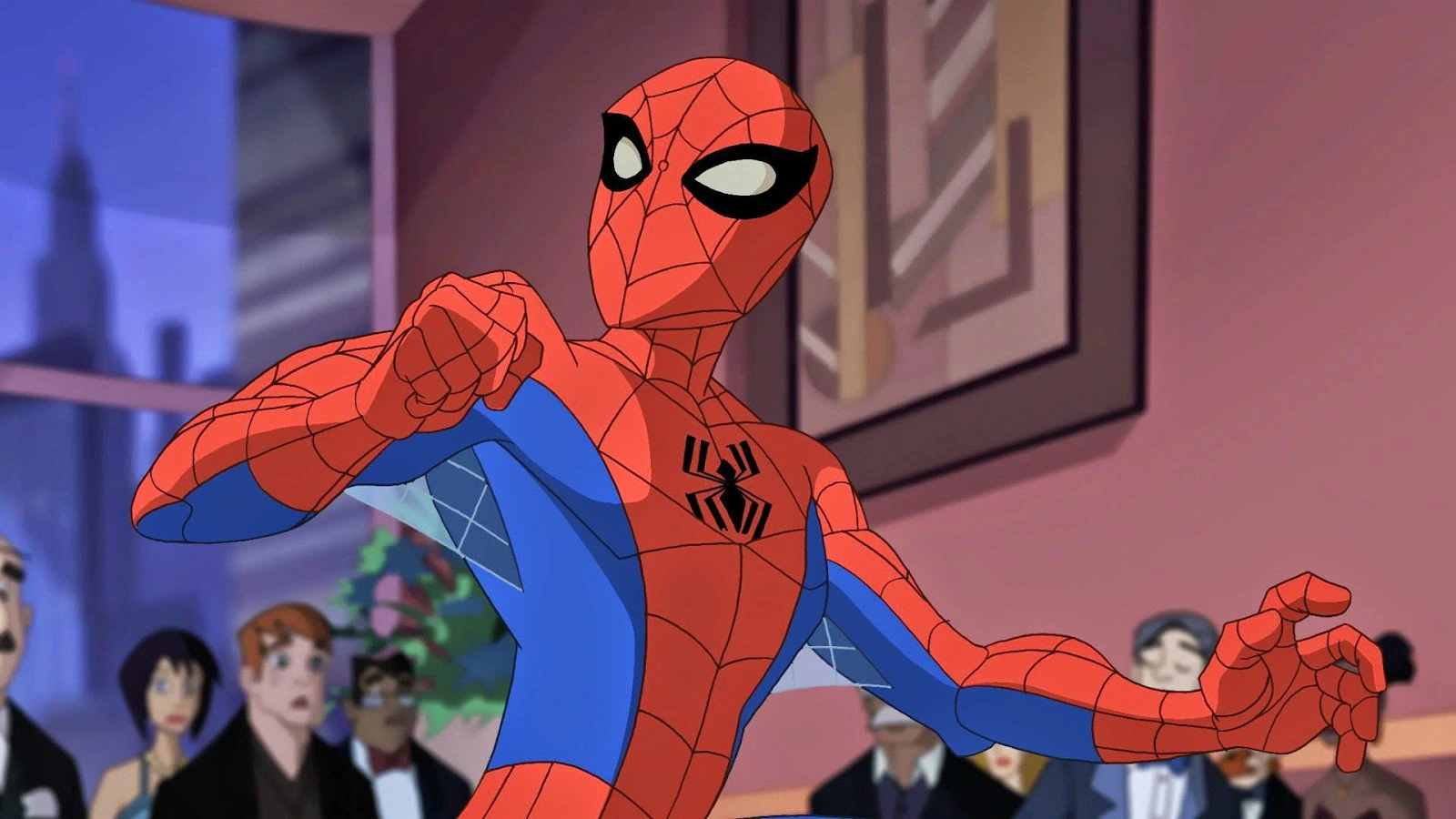
“So basically the only valid interpretations of Spider-Man are the ones that you like?”
Basically.
Who made Spider-Man?
Steve Ditko, the artist, was the talent behind the art and the majority of the writing for the first thirty-eight issues of ‘The Amazing Spider-Man’, as well as the first two Amazing Spider-Man Annuals, and the first comic (Amazing Fantasy #15, which is also the first anything) that showed off the red-and-blue web-head. Stan Lee, as far as I understand it, was the front man who wrote some of the dialog (I’m exaggerating, but I’m also right). You can read about this anywhere else on the web, but basically Stan and Steve hated working with each other. It got to the point where they never even worked face-to-face after issue twenty-five, with Steve mailing in his work to Stan who would finish it up and send it to be lettered, colored, and printed. After the thirty-eighth issue Steve quit. Stan refused to even meet with Steve to discuss why he wanted to quit. (I’m summarizing, you can go look it up for yourself to get the whole story with “citations” 🙄)
How did Spider-Man come to be?
Peter Parker is an academically-gifted white boy who lives with his Aunt May and Uncle Ben in a small house in Forest Hills, NYC. His family is not influential nor wealthy, and he is unfortunate enough to grow up in a coeducational public school environment, and as he is not the sort of boy to follow the crowd like a clown, or to command the crowd like a ringleader, his innocence is torn to pieces like the body of a martyr. Thus, even by the age of fifteen, he has been deemed a social outcast by his nasty peers.
One fateful day, Peter has a close encounter with a radioactive spider, and suddenly the manly, fighting spirit of his forbears comes alive in him, and he his gifted with a Sampson-like strength, an aristocrat’s agility, a warrior’s wit, a Greek wrestler’s grip, and a spider’s sense. But this poor youth has already been tainted by the world, which he does not see as anything beyond his fickle and mean classmates. Thus, the young nihilist uses his newfound abilities for show to make money in TV appearances, wearing a red-and-blue long-underwear suit with a mask, boots, and gloves, and using his intelligence passed down from some high-born ancestors to build himself web-shooting devices.
One night, after another successful show, a thief robs the very same television studio that Peter is at, crossing his very path; and not giving it a second thought Peter lets the thief go. And why shouldn’t he. All those around him either paid him no notice, or wished that he was not around to notice, save his dear aunt and uncle. To put it in his own words, “They’re the only ones who’ve ever been kind to me! I’ll see to it that they’re always happy!, but the rest of the world can go hang for all I care!”
Later that night, Uncle Ben is shot dead; killed by the same thief that Peter allowed to escape. And though Peter catches him, he is deeply grieved at the loss of his Uncle, a loss that he could have stopped; “aware at last that in this world, with great power there must also come great responsibility!”
All of this comes from the comic Amazing Fantasy #15
What does Spider-Man do?
Spider-Man commits crime to catch criminals and risks his life to save lives.
After the death of Uncle Ben, Peter honors the good name of the man who raised him by donning his costume as a disguise and patrolling the rooftops of Downtown NYC to catch and punish criminals. All of this is extremely illegal, but Peter does it anyway because now he sees that he must take responsibility, as much as he can, for all those around him. Several times in the Ditko comics, as well as my two favorite adaptations, the “Spectacular” cartoon and the “Sam Raimi” Movies, Spider-Man refuses to be arrested to protect his identity and usually to go save lives.
Is Spider-Man a super hero? What makes him different?
Who likes super heroes anymore?
In the Year of our Lord 2023, there are basically two, but actually three (but honestly four) types of people when it comes to “super heroes”. The first, which I believe was actually once a large portion but has become smaller and smaller especially since 2018, are your super-hero-heads, your marvel fans, your funko pop buyers, etc. These are loyal fans who will consume anything that is branded to their preconceived interests that they have not allowed to change in years.
The second is your average Martin Scorcese (Score-say-zee) appreciators, your kino enjoyers, and your movie appreciators, but also includes a lot of normal people who don’t bear strong opinions about this sort of thing. A lot of these people are sick of super hero movies and media and stuff, as they see it as played out. As a result they also retroactively look back and say that anything that could possibly be branded as a “cape flick” as poor art or whatever.
The third and mostly silent group are those who don’t really see the “super hero” genre, or any genre, as a mark of quality and judge things one at a time. They’re right.
The fourth group are your Mongolian nomads and your Appalachian porch-sitters who don’t care much for the outside world as they aren’t interconnected, but they are dying out most unfortunately.
What are super heroes?
The rise of the super hero genre in the twentieth century is the combination of three things.
- The rise in popularity of masked vigilantes in pulp media
- The post-industrial-revolution, post-WWI society, including the ending of monarchs and the rise of republics.
- Nihilism/Nietzsche
Heroes are an obvious necessity, but how do we write them after the Great War? Countless characters like Robin Hood or Ivanhoe had to fight off tyranny as outlaws in expectation that one day the king would return and set things aright. But after the First World War, the Holy Tsar and his Holy Family were martyred and replaced the monarch of the largest Christian nation in the world with an atheistic regime. Kings were on their way out, bringing us to to day where we have no monarchs in power any more. Therefore you see characters like Batman starting to fight evil in their stories in perpetuity, with no end in sight.
There is also to consider the rise of technology for killing, transporting, and surveying. Zorro may have been able to battle the corrupt Spanish Army in California in the 18th century, but who’s to say a man with a horse and a mask could fight off even just the LA police department in the 1930s? Many of these masked heroes, including Zorro, were able to do their good deeds because of their status as nobility. But we also live in a post-nobility age, where society is based on money and loyalty, not to a personal monarch, but to the state.
The Nihilistic aspect comes into play as writers might say that there are no men alive left who could conceivably do battle or even influence this post-war world on their own. Therefore they sought it necessary to invent new men with unnatural abilities who could keep up with the times.
So what is Spider-Man?
The real Spider-Man is unique because he appears in the “silver age” of super hero characters, but he is reminiscent of the older class of fictional hero. I will say that he is not a Nietzsche-type superman. That influence took two paths. Either the characters need not suffer at all, and external events should not affect them internally like a psychopath, or they should suffer but never as a result of their own consequences. Spider-Man made mistakes and suffered for them, and he also suffered for doing right. For this he was praised for being a quite realistic character. The real Spider-Man stories have a quality reminiscent of the book of Job.
Spider-Man can fight evil in the post-war world with his clever, under-the-clothes disguise, his unique weapons, his mind, and his physical ability.
He has successfully brought the rebel-hero character into the 20th century without compromising and becoming a nihilistic view on humanity.
But what about his powers?
I don’t actually like that Spider-Man has superhuman powers, but the powers that he does have are mostly just human abilities in a well-exercised form, with the exception of his sticking-to-walls. I think Spider-Man could have gone along just fine with just his God-given human abilities and his web shooters.
Should Spider-Man fight crime forever, with no king to return?
No. If you ask me, the first 33 issues approximately of the Amazing Spider-Man make up a good first act. I don’t think Spidey, or any superhero has ever gotten a proper ending. I think that is a curse of the genre. None of these caped heroes have any end goal to fight for.
Who or what isn’t Spider-Man
Spider-Man is not a(n):
- Simp
- Nihilist
- Kiss-up
- Narcissist
- Liar
- Incestuous Pervert
- Revolutionary
This may seem like a rather arbitrary list, but in any of the post-Ditko (read, mostly non-canonical) era of Spider-Man, you could call any rogue interpretation at least one of these bad qualities.
“Amazing” Movies
In the 2014 movie, close to the end, “Spider-Man” vows to a man who just saved his life that he will not endanger the man’s daughter by pursuing her. Five minutes later of film time “Spidey” breaks that promise with no remorse.
Ultimate Comics
In the Ultimate Comics he’s just an annoying whine-y jerk. I got sick of reading after just a couple of issues, and then found out later that in later comics he has a romantic relationship with his adopted sister (gross!)
MCU
In the MCU movies he just really dumb, and can’t decide anything for himself and constantly has to be told what to do. It’s not like childlike simplicity or a manly obedience (both of which completely absent from modern movies), but rather a sort of weak-willed attitude. He also makes stupid decisions non-stop (I am thinking of him giving the glasses to Mysterio in the second movie), it’s hard to watch. He also simps for “““MJ””” (played by Zendaya) who is only nice to him by the third movie, which was entertaining by-way of the spectacular imagery, and the acting (in the second-half at least), but was filled with a slew of plot-holes.
The 2018-and-on computer games
One thing you must understand about these modern big-budget games if you don’t play them is that they are movie-quality in terms of their appearance. As a game, I felt like I had experienced all there was to with the dumbed-down swinging mechanics and the repetitive beat-em-up sections. Though I don’t play much in the way of computer games anymore, I must say that I did enjoy the “Arkham” trilogy of games. The Story and the Combat and Traversal mechanics were each much more challenging, well-developed, and enjoyable in the Arkham games.
As to the characterization of this iteration of the webhead (which I will now refer to as the , and the reason I wrote this article, I will just start listing the things that were dumb and figure it out later.
- All the cops are totally fine with Spider-Man doing whatever, and they never try to arrest him.
- Gay flags are all over the game, and a mod that removed said gay flags was taken down from every major modding site and gained minor coverage on the big sites for being homophobic. I’m not saying this isn’t an accurate depiction of NYC these days, but there’s a lot of things you could find in the big apple that I wouldn’t put in a video game that kids are going to play. It doesn’t even serve the story.
- J. Jonah Jameson, who was an extremely interesting and dynamic character in the Ditko run and the faithful adaptations, continues in the vain of the MCU films and becomes a bad parody of Alex Jones.
- There’s a female police officer named Yuri that basically just tells Spider-Man what to do and has him do the police’s bidding, including setting up a system of 5G mass-surveillance system throughout the city.
- MJ and Peter have been off-and-on dating which is infuriating in stories and real life. Either break up or get married! At least in the Raimi Movies the romantic tension was based on a deep, if misguided, sense of responsibility on Peter’s part, not just a mutual agreement of “it’s so hard to date you when you have to run away to save lives so let’s just give up”. BOOOOOOOOOOOOOOOOOOOOOOOOO!
New Comics
He’s a total narcissist in the new stuff.
Not a Revolutionary?
Oh yeah, in one of the Ditko comics, Peter runs into a mob of protesting college students and mocks them. It’s pretty funny. Go read it for yourself in issue thirty-eight, which, funnily enough, was the last issue that Ditko worked on.
Why are there all these bad interpretations of Spider-Man?
Spider-Man became popular because he was a hero character of the old school in new times. All these attempts to reinvent him (subtly) are to cash in on the brand without the substance that made him popular in the first place.
Again, what’s the point!
Spider-Man has been popular and influential for sixty years now. When someone puts out garbage, people will smell it eventually and it won’t take off. But when someone puts out something accidentally good, but then a few years later change it, people will still, and have still, kept it around. The good parts about Spider-Man are why people like him, but the bad parts that have come after are hurting our society in no small manner. Spidey’s popularity makes him dangerous.
Ultimately, that is the same thing they do with Jesus Christ, though on a different scale. Jesus, the son of David and the Son of God, came to live, to minister, to die, and to be resurrected and carry all those souls that would come with Him out of Hades and into Paradise. In two-thousand years, we remember His name, but every one seems to want to put their own wicked spin on His message. Barabbas was wicked from the get-go, and no one remembered him. Jesus was good from before all things, and He will always be, and so until He comes again there will always be those who twist His message. The great evil comes when people mistake the original good with the subversion.